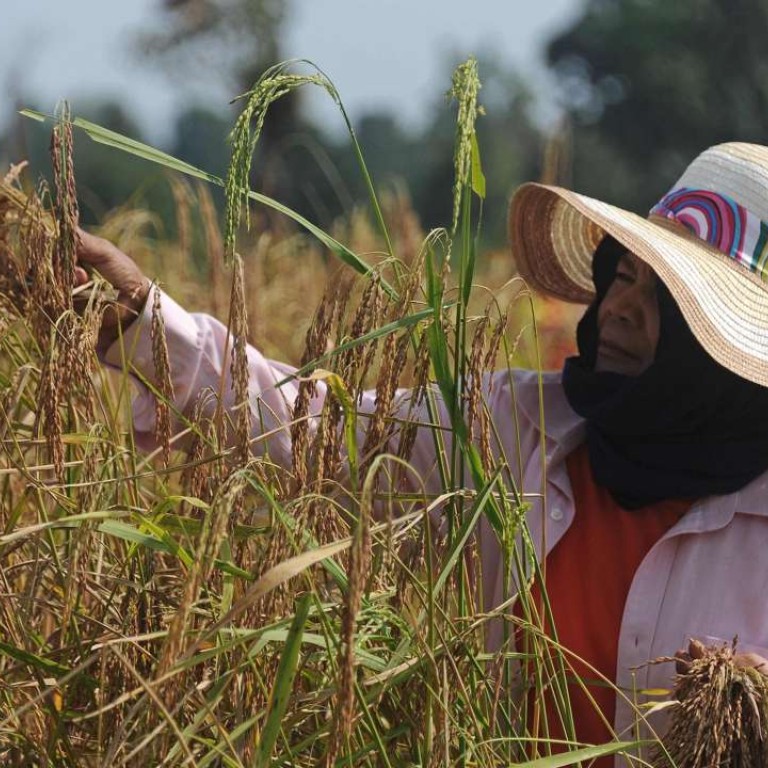
Thailand’s junta rolls out rescue packages to help rice farmers hurt by low prices
Thailand’s military government has rolled out a series of rescue packages in a bid to help rice farmers, most of whom hail from the political heartlands of the government it toppled, amid tumbling prices of the grain.
There’s a possibility for tension, which could be used to incite political gatherings
But in recent weeks the military government has announced measures worth at least 59.28 billion baht (US$1.7 billion) aimed at curbing market supply and stabilising rice prices.
“There’s a possibility for tension, which could be used to incite political gatherings,” said Kan Yuenyong, executive director of Siam Intelligence Unit think-tank. “The government fears the situation would get out of control, so they have to intervene,” he said.

Global rice prices have plunged over the past months as the world’s largest rice producers anticipate an influx of new stocks towards the end of the year.
Some Thai rice farmers have taken matters into their own hands and are turning to social media network Facebook to sell their grain, shunning rice millers, the industry’s traditional middlemen, whose prices they say are simply too low.
Nim Inthasorn, 33, who hails from the northeastern province of Kalasin, said she has received orders for over 50 tonnes of rice since she started a Facebook page in October.
“I would hold the rice until prices improve, but that isn’t practical so this is what I can do now,” she said. Her family’s jasmine rice fetches around 7 baht (US$0.20) per kg from rice millers, but on Facebook she can sell it for 23 baht (US$0.66) to 34 baht (US$0.97) per kg, she added.
But the trend is unlikely to take over traditional methods of selling rice, said Pisanu Sangyoo, an analyst at the Thai Rice Exporters Association. “Most farmers still have to do business with rice millers and exporters,” he said.
Government spokesman Sansern Kaewkamnerd said this week the government supports farmers selling their grain online.


